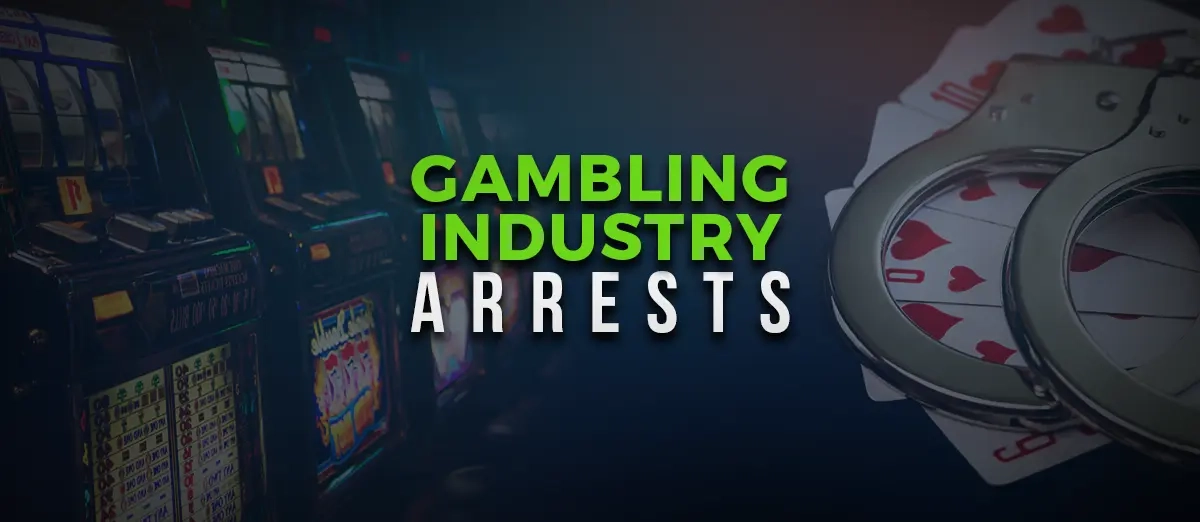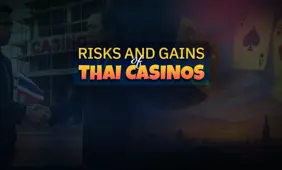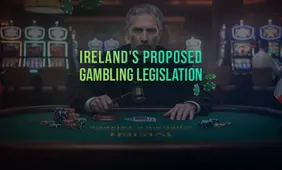Famous Controversies and Arrests That Rocked the Gambling Scene

While the gambling industry is known for being one of the biggest growing in the world, with new markets continuing to establish themselves, in addition to there being a huge demand, it still isn’t without its murkier aspect.
Indeed, the reputation of the industry has changed significantly over the last few years, and a lot is still being done to make it a much fairer environment for everyone; however, as we have seen over the past couple of decades, authorities take a dim view on any kind of wrongdoing.
Less serious matters, such as customers trying to get an edge, are still commonplace, especially in land-based casinos and, as a result, establishments have substantially improved their policing and detection of this over the last few years with many systems being in place.
However, there have been numerous instances of serious offenses in the gambling industry that have led to arrests, some being on a considerably wide scale. Below, we look at some of the most notable in the industry over the years.

Tommy Glenn Carmichael
Before brick-and-mortar casinos had the sophisticated technology to detect cheats, one infamous case occurred in 2001 when a slot player called Tommy Glenn Carmichael came up with his own way to rig slot machines.
Across the span of nearly two decades, he developed numerous inventions to do so and kept improving them as casino detection technology got better.
One of his most novel inventions was known as the ‘Monkey Slider’, which was a wire that he was able to insert into the machine’s payout chute that tripped the slot’s microswitch, which then tricked the internal mechanism into paying out the jackpot each time.
Following this, he then invented what became known as the ‘light wand’. This was a device that used a very small camera battery with a light bulb attached. The purpose of it was to blind a slot machine’s sensor, which fooled the slot machine into releasing an abundance of coins each time. Daily, Carmichael accumulated thousands of dollars using this invention.
He once reportedly boasted: “Give me a slot machine, and I’ll beat it.”
Meanwhile, a fellow convicted slot cheat, Jerry Criner, was once quoted describing him as: “A legend, he’s the greatest mind as far as developing cheating tools.”
Carmichael was caught and arrested by the FBI in 2001, following an investigation and sentenced to 326 days in prison, three years probation and issued a ban from entering casinos.
Ron Harris
Arguably, one of the most elaborate fronts in the industry concerned software developer Ron Harris, who was tasked in the early nineties with coming up with anti-cheat software for slot machines.
However, in secret, he programmed many machines with software that was able to trick slot machines (30 in total) into paying out huge amounts. As a way of trying to manage the risk, he paid accomplices to play these slot machines, which resulted in payouts that amounted to hundreds of thousands of dollars.
In 1996, Harris was finally caught after one of his accomplices was found attempting to rig a game of keno in an Atlantic City casino. Harris pleaded guilty to four counts of cheating on slots and, subsequently, sentenced to seven years in prison.
He became, at the time, the first former regulator to be added to the industry’s infamous ‘black book’ and revealed at the time that he would not be fighting this. Harris’s offenses took place, most notably, in both Las Vegas and Atlantic City.
Louis “The Coin” Colavecchio
Known as “The Coin”, Louis Colavecchio was an infamous counterfeiter, and, as a result, he utilized fabricated slot machine coins to help him earn payouts in the thousands of dollars at casinos on the Las Vegas Strip.
He was eventually caught in 1997 and sentenced to 27 months in federal prison for his counterfeiting acts, and at the time of his arrest in Atlantic City, he had 750 pounds (in weight) of coins in his car.
In 2018, he was arrested again at the age of 76 in Pawtucket, Atlantic City, after counterfeiting 2,400 fake $100 bills.
Mark William Branco
Along with two accomplices, craps dealer Mark Willaim Branco was sentenced to a minimum of four years in Nevada State Prison after being arrested in 2016 after they scammed the Bellagio out of more than $1 million.
The method that was used is that Branco’s accomplices would go to craps tables that he and another croupier were manning and place ghost ‘hop bets’ or high-value wagers, which indicated that a certain combination of numbers on the dice would appear. It was reported that one of the players would murmur something that sounded like a hop bet while one of the dealers would pay out as if the outcome was correct. It was revealed in court that this was repeated on 76 occasions over two years.
They were caught when casino operatives found that the group’s winnings went completely against the 452-billion to one odds. A Clark County District Court judge ordered the group to pay hundreds of thousands of dollars in compensation, with Branco sentenced to 10 years in prison.
Cantor Gaming Scandal
In this period, the Cantor Gaming Group was embroiled in a scandal that effectively shone a significantly negative light on the industry.
It was found that the company’s director of risk management, Michael Colbert, along with his staff, approved big illegal deposits from customers who resided in different states while also processing the illegal winnings. In addition, the staff also signed off on two illegal bookmakers to money laundering through the company.
The principal probe in 2012 saw over $2.8 million seized, with in excess of 25 arrests made, in addition to Colbert. As such, the company, now CG Technology, agreed to pay a $22.5 million settlement and Colbert’s initial five-year prison sentence, after pleading guilty in 2013, was commuted, and all charges against him were dropped.
Alvin Chau
Asian territories are no stranger to scandals in the gambling industry. Arguably, the biggest for years came to light in Macau in 2021, when the founder and chairman of the Suncity Group, Alvin Chau was arrested for being accused of creating and leading a criminal syndicate that had approved undeclared bets.
Interestingly, just days before his arrest in December 2021, the tycoon resigned from his post. Having adopted a nickname of the ‘Junket King’, prosecutors accused Chau of the conspiracy that led to the government losing out on $8.26 billion in taxable income.
The court sided with the prosecution for the majority of the cases; however, Chau was acquitted of money laundering charges, while 30 others were also jailed. Following the arrest, the Suncity casino shut down all of its VIP rooms.
Operation HAECHI IV
In a widely publicized affair, an Interpol operation resulted in the arrests of 3,500 individuals involved in cybercrime across the gambling sector. The endeavor, spanning six months, concluded with a series of arrests in Manila, Philippines, targeting severe cases of online fraud. The operation's scale was evident in the seizure of over $300 million in assets, much of it linked directly to illicit online gambling activities.
These illegal gambling-related arrests underscored the global extent and intricacy of cybercrime networks, emphasizing the imperative for coordinated efforts among international law enforcement agencies to effectively combat such threats.

Gambling Industry’s Fight against Illegal Activity
While many of the arrests in the gambling industry, we discussed in the text above occurred nearly a decade ago (at least in Westernised countries), there are still isolated incidents of these taking place in other areas of the world - especially where gambling is either less developed or deemed to be illegal.
Certainly, now, thanks to previous cases, the industry is definitely wise to illicit activity and has requisite measures in place to detect illegal cases of gambling. Land-based casinos have invested millions in anti-cheat software, much of which is highly sophisticated, making it effectively impossible for this to happen now.
From an online perspective, it is required by law for all operators to have measures in place that essentially restrict any form of fraud and money laundering, in addition to policies such as KYC (Know Your Customer). This means that players have to provide as much information as possible about themselves so that online brands can run highly detailed checks about the identity of their customers. In addition, there is also VPN detection software in place that prohibits customers from being able to fool operators as to their location.
As such, over the next couple of years, we are likely to see even more security measures introduced that give casinos an edge over cheats and those looking to break the law.





Review this Blog
Leave a Comment
User Comments
comments for Famous Controversies and Arrests That Rocked the Gambling Scene